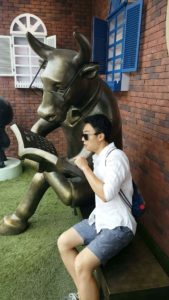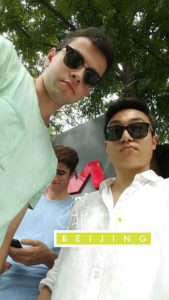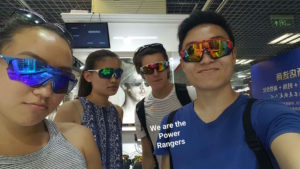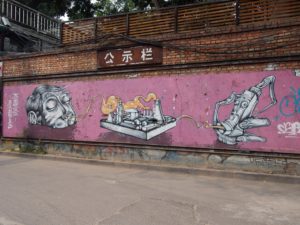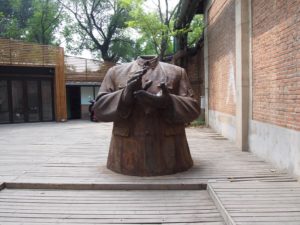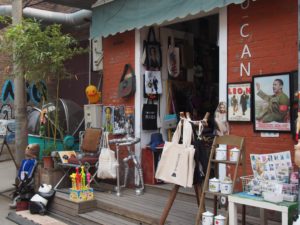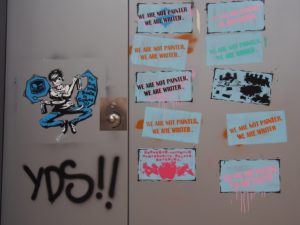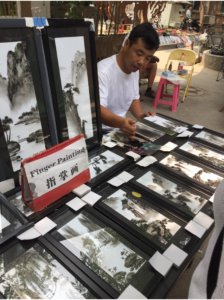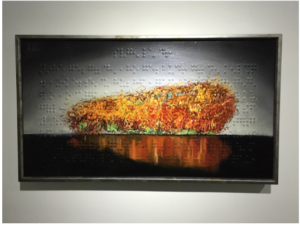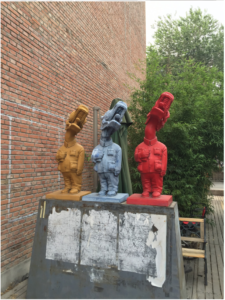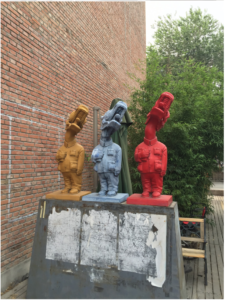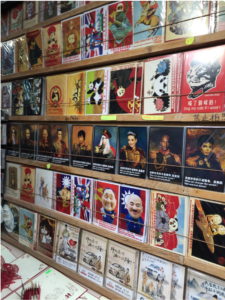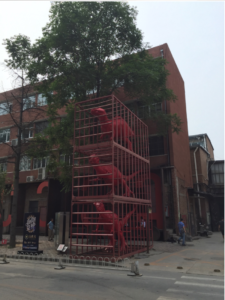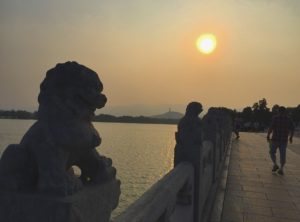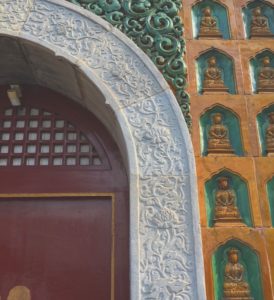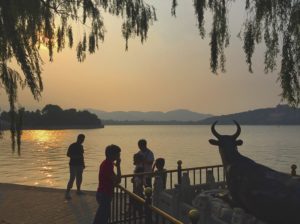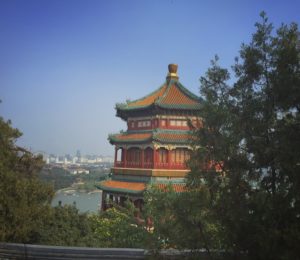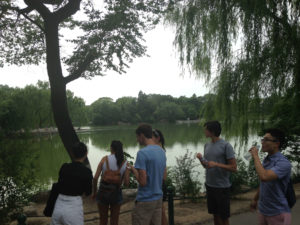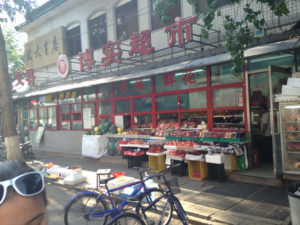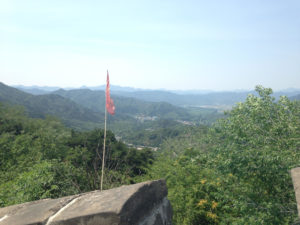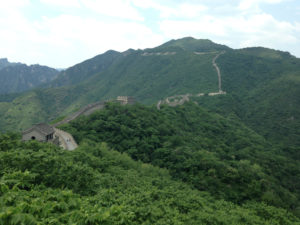When someone asks me what I’m studying at Notre Dame, I respond by saying, “Finance, Spanish, and Chinese” as I watch their expression shift from mildly interested to very confused. After asking me to repeat myself at least once, they almost always respond with, “Chinese?! Really?! Isn’t it hard?! Have you ever been to China?!” I smile politely and answer their questions with “Yes, yes, it is, and no but I would love to go someday!” Little did I know that, when the time finally came for me to take the 13.5 hour flight over the ocean and finally get to experience authentic Chinese culture, being in China would be one of the hardest and one of the most exciting things I’ve ever experienced.
Generally speaking, Chinese class in China is about the same as in America. We have homework, oral reports, essays, tests, daily quizzes, and wonderful teachers. However, every single day we have four hours of class followed by forty minutes of one on one conversation with a teacher. Learning Chinese makes one ridiculously tired, whether its from painstakingly trying to learn 250 new words a week that all sound and look about the same or from struggling to understand difficult grammar concepts that only exist in Chinese but not English. Because I signed a language pledge that I would only speak Chinese for eight weeks, I’ve been trying my hardest to learn as much of the language as quickly as I can in order to communicate as clearly as possible. Furthermore, speaking English in China practically has no use because it is seldom to come across anyone who can understand English.
Although becoming fluent in Chinese often feels like an impossible task, little breakthroughs and simple triumphs throughout my time here have pushed me to keep going. When I successfully obtained a card from the lady at the subway desk and navigated my way from my home at Peking University 2 lines and 17 subway stops away to a restaurant for dinner where I was able to successfully order food in Chinese, it felt like I could actually become accustomed to living in China. 8 weeks in a foreign country with foreign customs and a foreign language? I can do that! …can’t I?!
My first weekend in Beijing was spent getting situated in my dorm, learning about the program during orientation, and meeting my Chinese language partner, a Chinese Peking University student named Lily who has already taught me a few popular slang phrases in Chinese. On Sunday, June 19th, I also got to celebrate my birthday! The Notre Dame coordinator and Chinese teacher, Ye Laoshi, truly cares about the well-being of his students, and he bought two cakes to help me celebrate turning 20 in Beijing! Ye Laoshi calls himself our yeye- ye in Chinese can also mean grandfather, and Ye Laoshi’s caring nature has definitely turned him into our Chinese grandfather, even though he’s a young teacher. It was definitely a unique birthday, especially considering the two cakes were made of vegetables, as Chinese people traditionally do not enjoy sweet treats.
The second weekend in Beijing, Notre Dame took us on a trip to the Mutianyu section of the Great Wall of China. After taking an almost two hour bus ride out of the city of Beijing on Saturday morning at 8 AM, we finally arrived at the entrance to the wall. In order to reach the wall, we climbed about 80 flights of stairs up to the sixth guard post of the wall. We quickly realized that the Chinese version of hiking was really climbing stairs instead of walking up inclines. It was one of the most physically tiring things I’ve ever done, especially considering it was over 100 degrees outside in the sun. Once we reached the wall, we were rewarded with beautiful views of the surrounding mountains and greenery. We “hiked” from the 6th guard post up to the top of the 12th guard post, taking in the breathtaking scenery and coming across a few Notre Dame alums along the way, just proving how ridiculously widespread the Notre Dame network truly is. After finally getting to the top of the Mutianyu section of the Great Wall, we hiked back down to the 4th guard post where we were able to take a slide down the side of the mountain. It was one of the more dangerous and most fun things I’ve ever done. I was so fortunate to visit one of the wonders of the world, and I’m so thankful for such a great opportunity! On the way back from the Great Wall, we stopped at an art gallery opening and were able to meet the owners and artists. It was so interesting to discuss the art work with its creators in Chinese, and it was cool to see how even though people may come from different cultures, they all experience the same feelings of hope, sadness, and confusion that can be expressed through their art.
On Sunday, we were on our own to explore the city as we pleased. We decided to take the subway to the Hongqiao Pearl Market, one of the largest counterfeit markets in the city. All though none of the items in the 7 floor building were real, they were all so realistic looking some tourists were getting fooled into paying prices one would pay for the real thing! It was so fun to barter with the shopkeepers, and negotiating a good price is definitely an acquired skill that takes a bit of practice. The different shopkeepers have bartering with foreigners down to a science, using flattering English phrases and huge calculators to negotiate fair prices. Being American and being able to speak Chinese was definitely a huge advantage, as most of the shopkeepers immediately took a liking to us and wanted to know how and why we had undertaken the challenge of learning one of the most difficult languages. After getting ripped off a few times and finally figuring out the best way to get the lowest price possible, I walked out of the market with basketball jerseys for my brother, two purses for myself, two touristy shirts with funny sayings, and a traditional Chinese shirt. It was overall a very fun and light-hearted day. However, I couldn’t relax for too long as I had to go to office hours to prepare a 700 word essay and study for my quiz the next day!
Even though I’m in third year Chinese and am learning how to engage in discussions about complicated topics such as the no-longer-existent One-Child policy and the governmental restrictions on NGO’s, I am definitely realizing how long and winding the road is to even come close to speaking fluent Chinese. For right now, I’m just trying to keep up with the hustle and bustle of everything going on around me as I struggle to put together bits and pieces of what I’ve learned in class and apply them to the situations that I engage in around me. For right now, I’m still chasing China.
